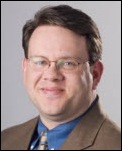The article about Pediatric Associates in CA has a nugget with a potentially outsized impact: the implication that VFC vaccines…
News 8/19/10
Steven Waldren, MD, the director of AAFP’s Center for Health IT, says the the final ruling on Meaningful Use includes some good changes. But, he cautions, meeting Meaningful Use objectives will still require significant effort. Specific concerns include a) the Medicare program places a heavier burden of Meaningful Use compliance in the first year compared to Medicaid’s; b) the aggressive timeline for implementation; c) the absence of certified EHR technology in the market; and, d) the complexity of Meaningful Use rules. Waldren also notes that RECs and vendors lack adequate skilled personnel to meet the market’s implementation and support demands. [Update 8/23/10: A few readers asked for clarification about Waldren’s comment that Medicare places a heavier burden for MU compliance than Medicaid. Thanks to Steven Waldren for the following:
The burden difference for the first year of participation between Medicare and Medicaid is that one does not have to report/achieve the measures of meaningful use under Medicaid to receive the incentive.
From the final rule:“The HITECH Act allows Medicaid EPs and eligible hospitals to receive an incentive for the adoption, implementation, or upgrade of certified EHR technology in their first participation year. In subsequent years, these EPs and eligible hospitals must demonstrate that they are meaningful users. There are no parallel provisions under the Medicare EHR incentive program that would authorize us to make payments to Medicare EPs, eligible hospitals, and CAHs for the adoption, implementation or upgrade of certified EHR technology. Rather, in accordance with sections 1848(o)(2), 1886(n)(3)(A), and 1814(l)(3)(A) of the Act, Medicare incentive payments are only made to EPs, eligible hospitals, and CAHs for the demonstration of meaningful use of certified EHR technology.”]
In a profile of the 176-physician Baptist Memorial Medical Group (TN), the group’s CEO says the hospital takes care of all the business concerns for their physicians, including leasing space and hiring and training staff for the billing and EMR systems. MGMA weighs in, noting that the main reason doctors are becoming part of hospital groups is the money. In fact, MGMA says that in 2009, first-year primary care and specialist physicians in hospital owned groups averaged higher compensation than those in other type practices.
Speaking of MGMA, the organization reports that compensation for practice management professionals has remained static over the last year. Interestingly, MGMA members are earning more than their non-member counterparts: office managers average $13K more per year and finance directors earn almost $1,000 per year more. ACMPE members achieve an ever bigger delta, earning at least 21% more working in practices of seven or more physicians. And, ACMPE-affiliated CFOs average $59K more than their non-affiliated peers. Note that you can join both organizations for a mere $585 per year.
A big welcome and thank you to AdvancedMD, our newest HIStalk Practice Platinum sponsor (and sponsoring HIStalk at the Platinum level as well). A few weeks ago, I had a chance to chat with AdvancedMD’s CEO, Eric Morgan, who is quite upbeat about the recent successes and rapid growth of his 10-year-old company. AdvancedMD started out with a SaaS-delivered practice management solution and acquired EHR vendor PracticeOne late last year. The Draper, UT-based AdvancedMD has over 10,000 connected providers, plus over 300 billing service providers participating in their AdvancedBiller program. We are pleased to have AdvancedMD on board!
Patients are more concerned about ready access to their medical records than they are potential record inaccuracies, according to Practice Fusion-sponsored survey. Their other top concerns include the theft or loss of medical record data and inaccessible data when in an ER.
I noticed that e-MDs posted some Facebook pictures from its sold out User Conference & Symposium in Austin, TX last month. This happy bunch were either Casino Night winners or members of e-MDs Advisory Board.
The seven-provider Good Neighbor Community Health Center (NE) selects Sage Intergy CHC as its EHR system.





What exactly does Waldren mean when he says, “Eligible professionals in the Medicare program must bear a heavier burden of full meaningful use compliance in their first payment year to receive the incentive payments”?
Correct me if I’m wrong, Medicaid applicants not only have to take 20% Medicaid by volume (or 30% to get the mythical $60K), which alone costs a practice much more than the incentive. PLUS, those practices have to comply with state regs which, even though they are now limited only to two additional MU requirements, means that each Medicaid recipient practice has to deal with their STATES, none of whom are any closer to handing out $$ than the Feds.
That’s the first comment I’ve seen from anyone suggesting that the Medicaid folks have it easier than the Medicare ones.
That’s not to mention the recent discovery by REC blogger BobbyG that Medicaid incentives may be optional on a state-by-state basis. Sounds like there’s a lot of confusion on that front.
“Specific concerns include […] c) the absence of certified EHR technology in the market; ” …
the last several years have seen the market respond to this demand. My own company provides an online (Saas) mental health / behavioral health EHR option for psychologists. We have seen a multifold increase in the number of competitors over the past year or two.